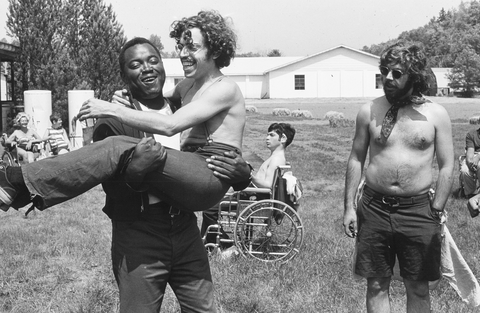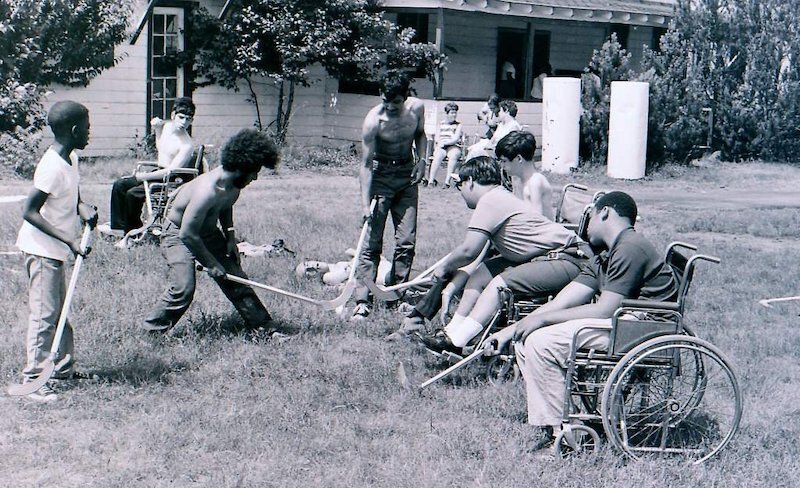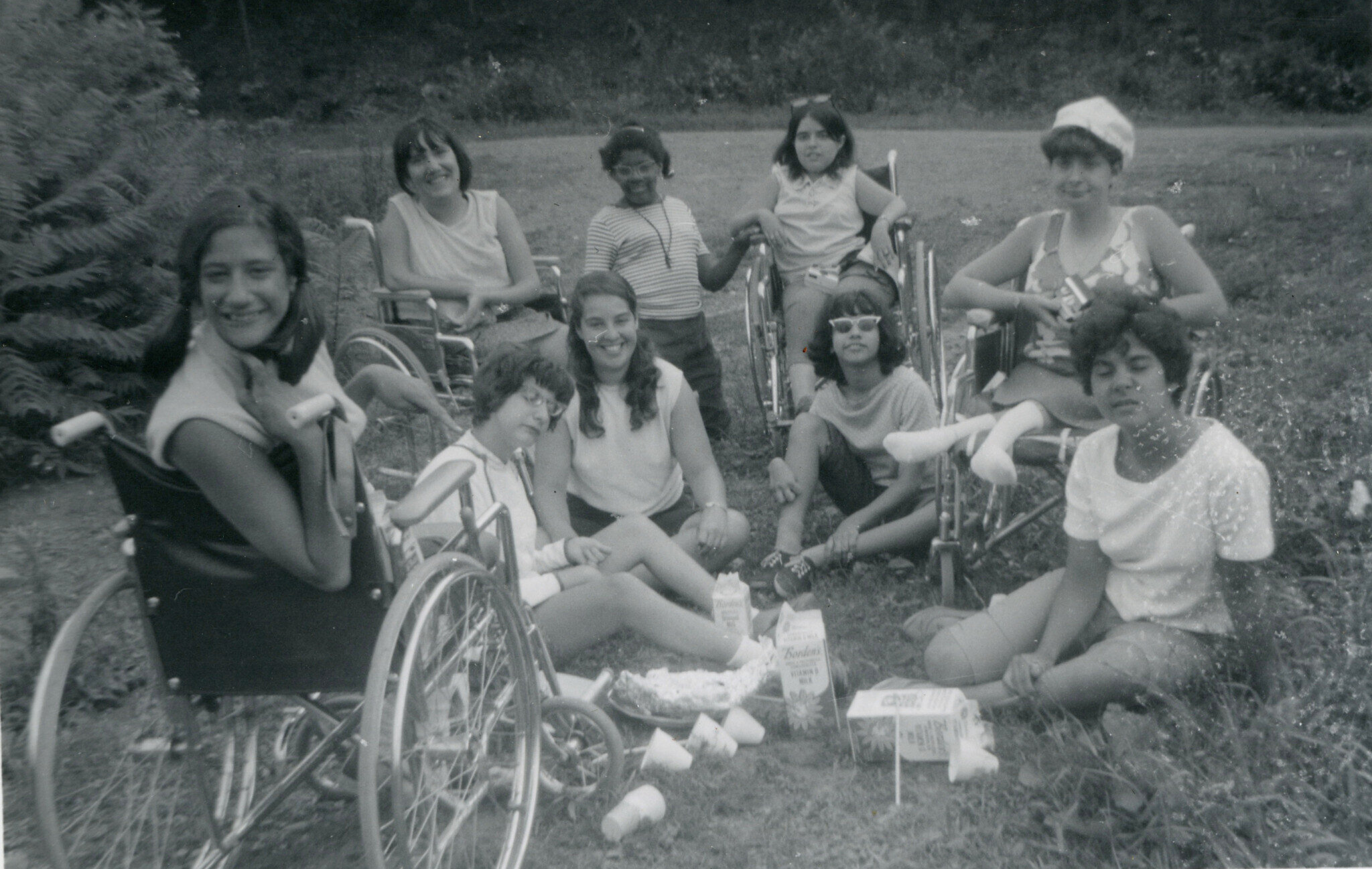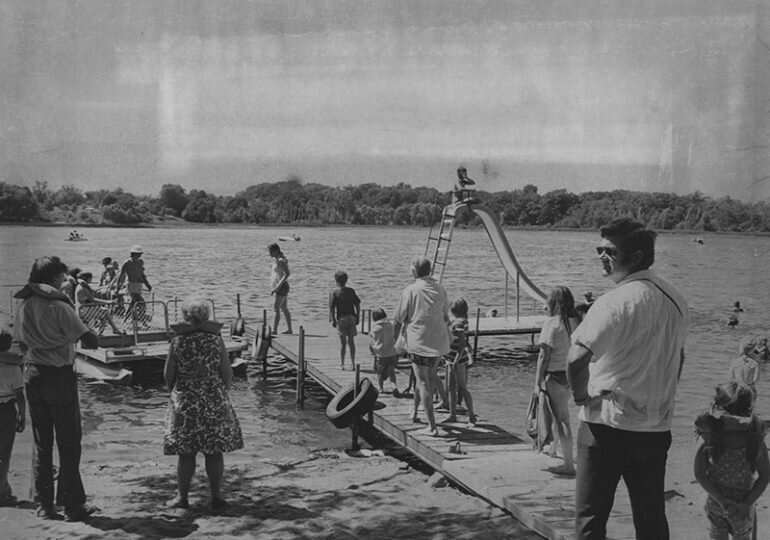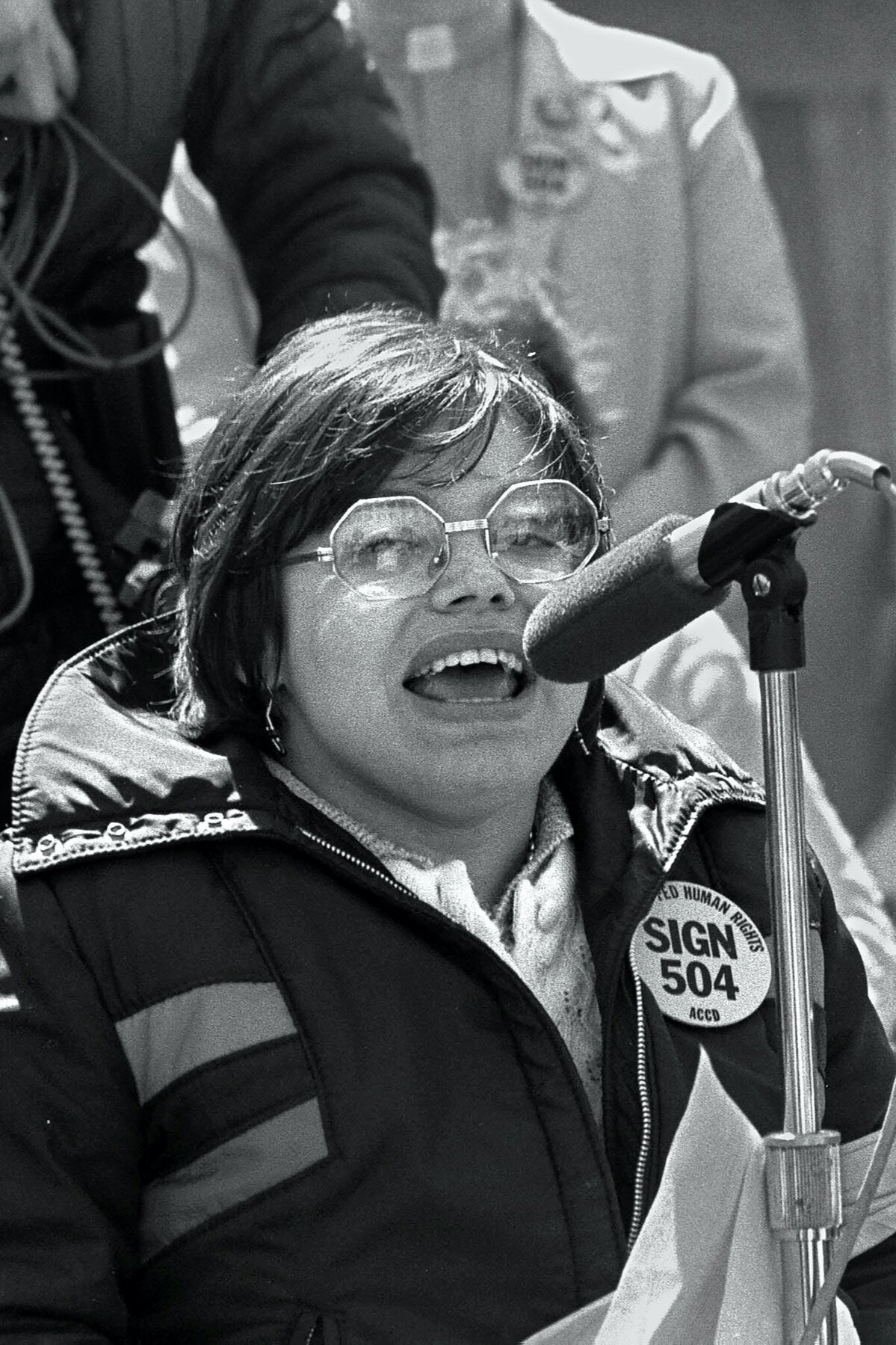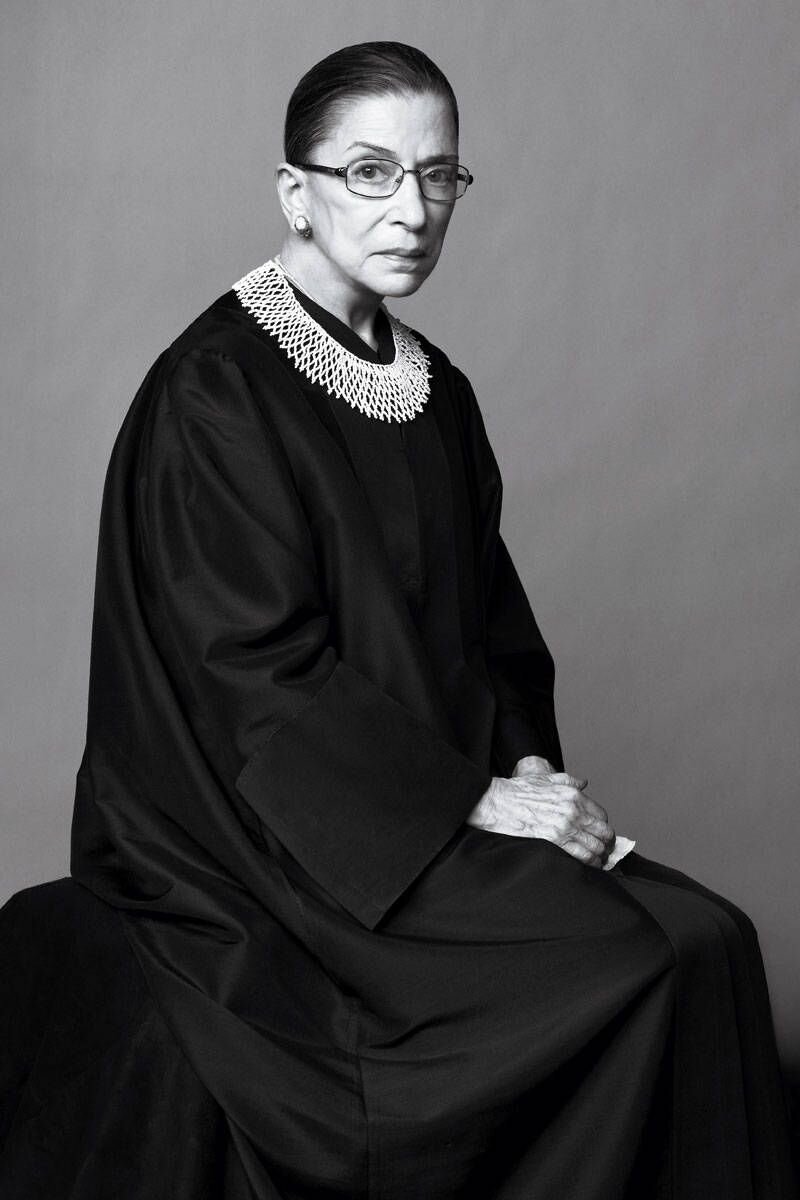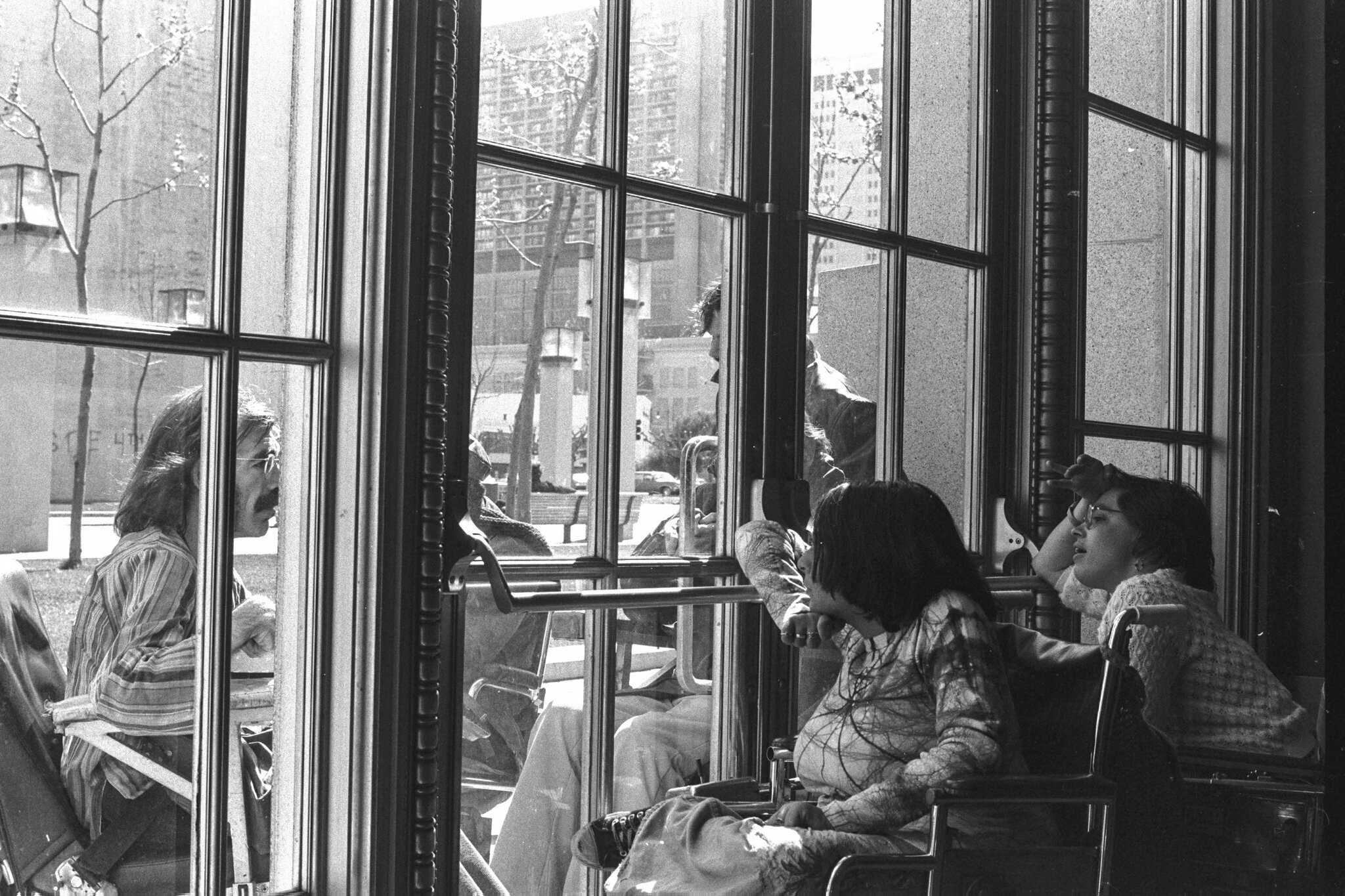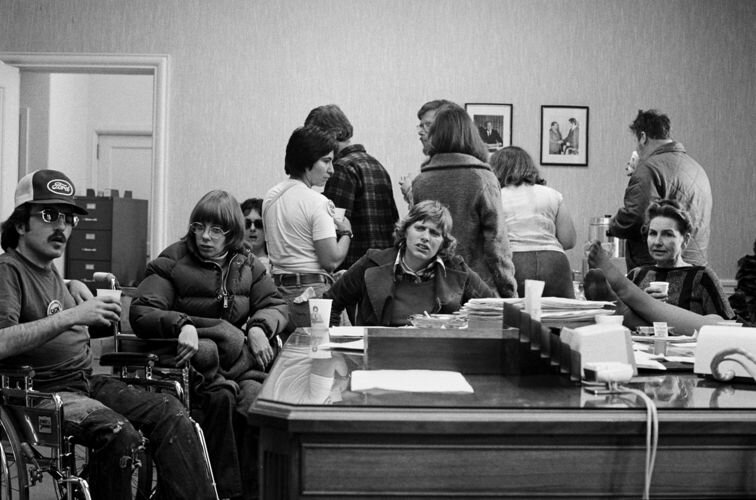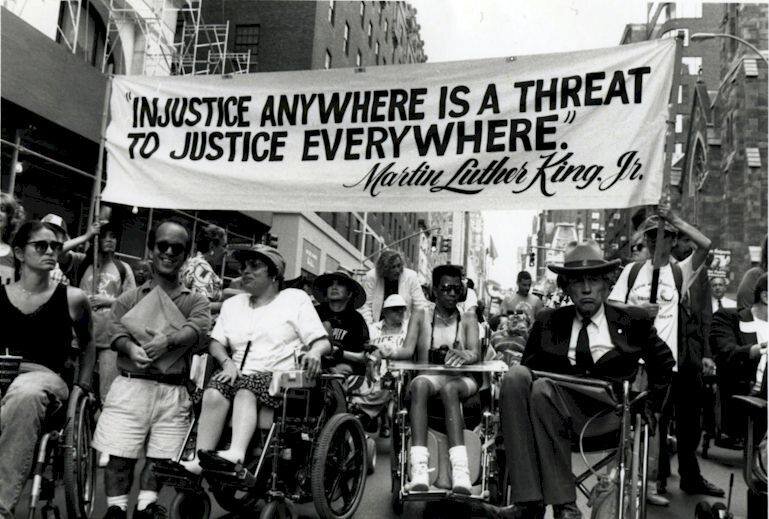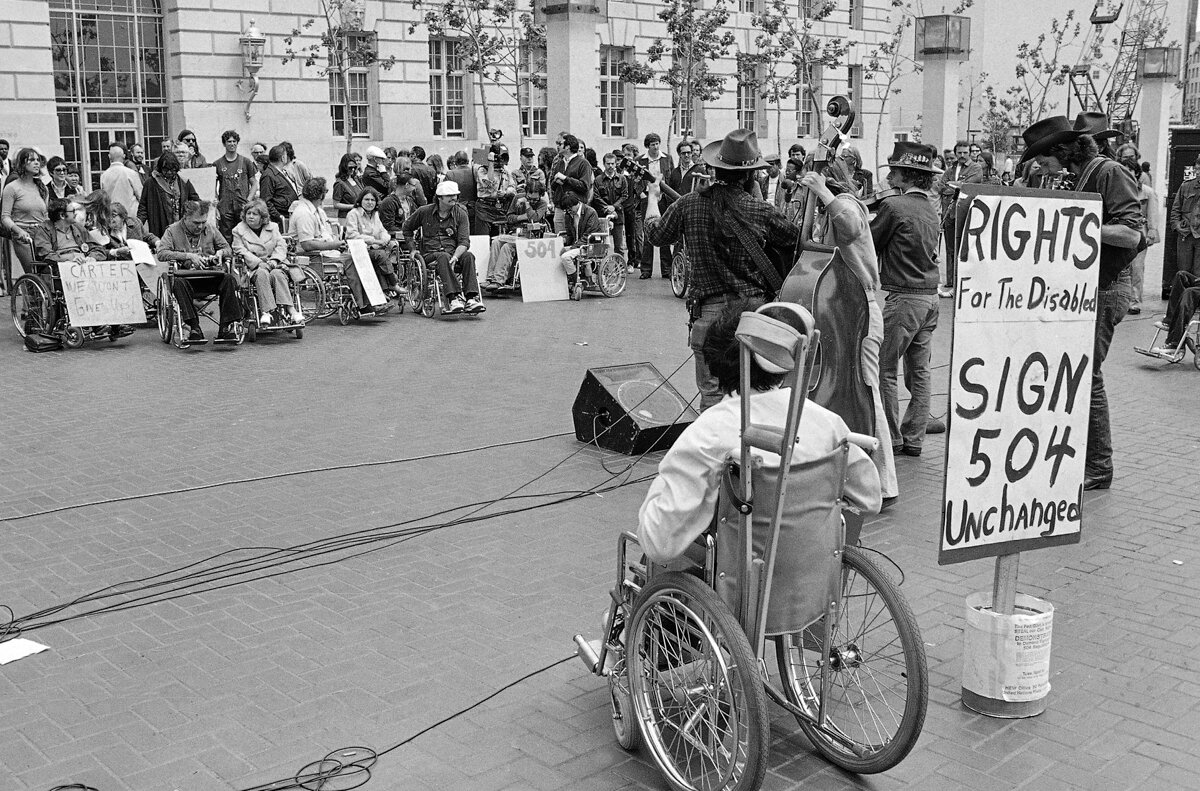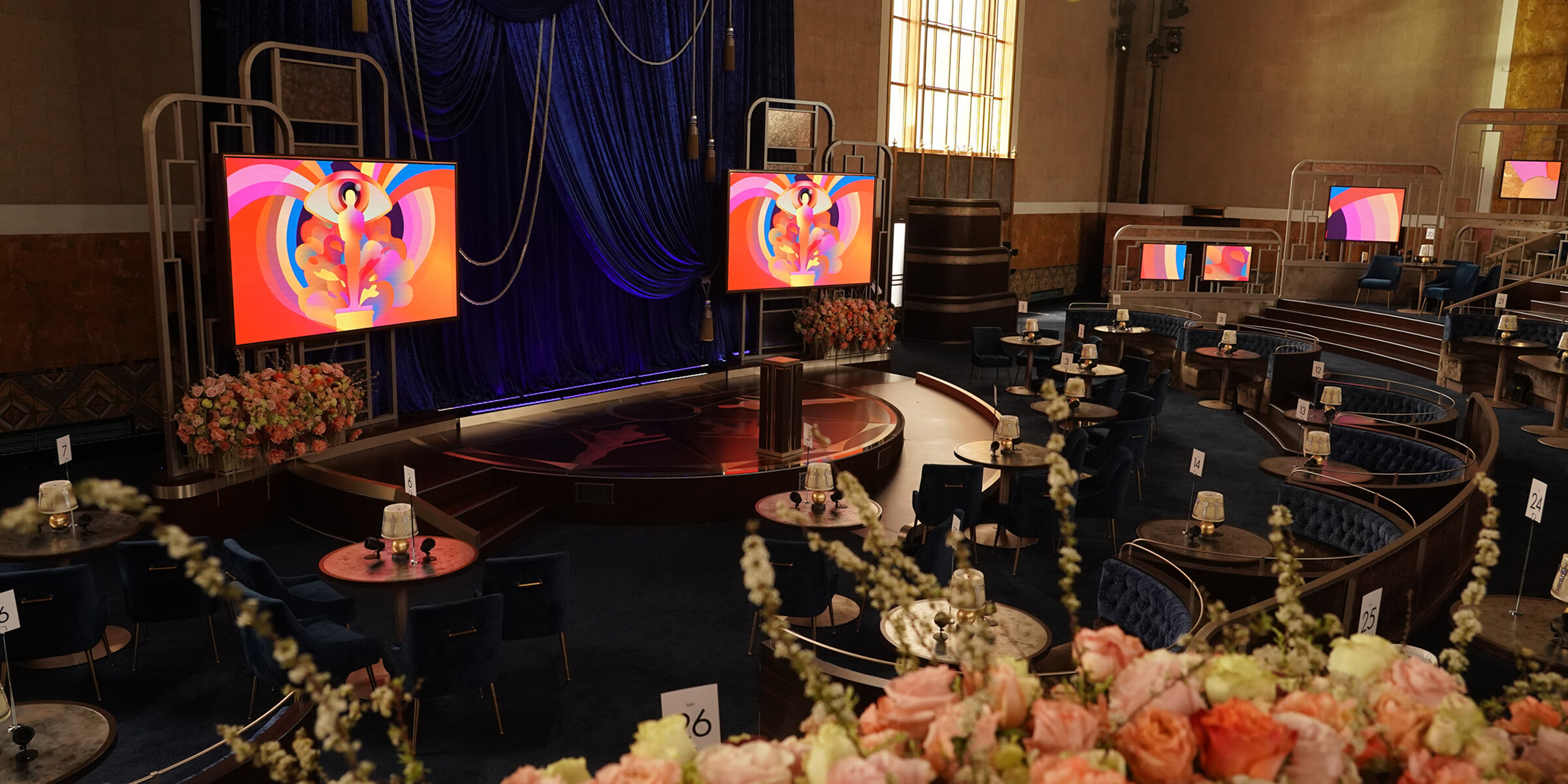A Continued Discussion: Crip Camp
Prior to watching the film, what did you know of the disability rights movement?
The origins of it? Not as much as I should. I knew about the ADA and what the 504 law meant for you when you entered the school system. I did not know about the origins of the movement; especially the young people who started it all.
Did you know of Camp Jened before watching the documentary?
No, I did not.
What were your initial impressions of the camp and campers?
I loved the camp. I especially loved the fact that the camp was truly a summer camp. it wasn’t a sterile environment. The kids slept in bunks. They played sports and listened to music. It looked like what I imagine summer camps to look like in the 1970s. Though there were kids with very different handicaps and health issues, the campers were treated the same. No one appeared isolated or left out of an activity. The counselors made fitting in fun and seamless. I did not see anyone appearing isolated. Everybody had a turn at bat and everybody played baseball regardless of disability. The counselors nor the campers displayed a “this won’t work”attitude
If Camp Jened was open today would you have sent me?
I would have sent you to the Painted Turtle, so yes, I definitely would have sent you to this camp.
*The Painted Turtle is a summer camp founded by actor Paul Newman and Page and Lou Adler for children with life-threatening and chronic illnesses.
When I was growing up, did you wish there was a place like Camp Jened for me?
Yes, I wish that it existed. Painted Turtle is only a one week camp. I wasn’t aware of any camps similar to Camp Jened.
Did you know who any of the people were?
Sadly I did not.
What surprised you most about the camp?
It was a real summer camp. It was not a sterile or isolated place for handicapped children. The kids and counselors just made it work. The counselors were young adults who had no special training. They just showed up on the first day just like the campers. I was so impressed by the fact that everybody had the same opportunity to express their feelings. I loved that together, as a young community, they were talking about their futures. It was evident that the campers knew that they their futures depended changing the way others saw and treated them. These were the seeds that grew into the disability rights movement.
I was also impressed by the way the kids expressed their feelings about their parents. Though some felt overprotected and constantly reminded that they could not do what others did, there was a sincere appreciation that their parents wanted to protect them from being hurt physically and emotionally because they loved children. They recognized how much many of them needed their parents daily help but still needed the time to figure life out for themselves. I am sure I was overprotective but I never wanted to instill fear or doubt that you would not be able to live your best life.
How do you mean?
As an example, when you were a little girl everyone took gymnastic lessons. I was over protective and afraid to let you do gymnastics because your doctors said your neck and spine were fragile. I didn’t want to do let you do anything then that would cause you a physical problem today. As a result, I did limit you; not because I didn’t think you would be do it but because I was afraid that by the time you were 40 you would face medical complications. I wanted you to be able to do anything and try everything yet I wasn’t going to risk your future health. I’m sure those parents felt the same on a deeper level. You always worry about your children, whether your child is 4, 14 or 44.
Were you aware of the disability rights movement as it was happening?
No. My friends and family were not politically active. It was never discussed in school.
What were your thoughts watching the protests?
My first thought about the protest was how Judy had been advocating ever since she was at camp. She made sure everyone had a voice and could participate when she was only a teenager. It was not surprising that she sued for her right to be able to teach. She reminded me of Ruth Bader Ginsberg.
This random group of kids and young adults who were lucky enough to attend Camp Jened before the camp went bankrupt formed friendships and bonds that created the moving force of the largest minority group in this country. The idea that the world not only should change but would actually be forced to change, to become accessible to handicapped people, was probably not even a hope or dream for most. It probably never crossed their minds that this would even be a possibility. And they did not stop at the possibility of change but together they made certain that change would become a reality. It took years to get the ADA passed, and today there’s still so much more that needs to be done, just like the other civil rights movements from that era. There has been great progress but so much more need to be done.
The protestors were strong and NEVER gave up. It’s sad that only one news station thought any of this was worthwhile to report and, if it weren’t for the strike, the protests would never have made national news. Otherwise only a small percentage of Americans would have learned what happened during those days. National news put pressure on the politicians to finally listen to Judy and her supporters.
I was struck by the resourcefulness of the protesters. I believe their ability to keep going was a product of having to live in this country without the help of accessibility and a collective lifetime of having to adapt everyday. Nothing was going to deter them from their objective of equal access for all. The protesters weren’t looking for handouts, just the ability to earn a living like everyone else.
What surprised you most watching the protests?
The crawl up the steps of the Capitol building. This demonstrated to everyone just how unfair life is when you are denied basic rights! It was awe inspiring watching the protesters refusing to give in or give up. They collectively and instinctively knew what had to be done and they did it!
What was your reaction to the government’s response?
Pitiful, to hear the politicians make the same argument again and again: separate but equal or the question how many people would actually benefit (cost effectiveness).
As an able-bodied mother of a disabled daughter, do you feel the laws (504, ADA) are effective? Why or why not?
I can’t really comment on that because you really only needed a stool. YOU didn’t want to be different from the other students.
Who should watch this documentary?
I think everyone should watch this. Its part of our history. It’s a part of who we were and are as a nation. We should all know each other’s histories.
One day we ALL may be caretakers for our loved ones who may lose their sight, hearing, ability to walk or drive. It’s one thing for a man to think women’s rights do not impact his life or if you are born white, black, brown, etc. that you won’t experience what others have had to experience, but the ADA could affect everyone’s life one day, or loved ones, children or parents . The ADA is not just for those who need it today.


